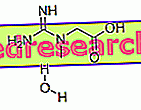Generality
The natural remedies against water retention that can be used to eliminate this disorder are many and varied.

However, it should be pointed out that these remedies cannot be used in all cases and, above all, are not effective if used alone.
To counteract water retention, natural remedies can indeed prove to be a valuable aid, but only if associated with a healthy lifestyle.
Please note
When water retention is pathological in nature (that is, it is triggered by pathologies, for example, of a cardiovascular, renal, allergic nature, etc.), it is necessary to seek medical attention, since in these cases it is necessary to intervene with appropriate treatments and therapies that are able to treat the underlying disease that caused the disorder.
The use of natural remedies, in fact, is usually more suitable in cases where water retention is triggered by factors linked to an incorrect lifestyle.
Effective Natural Remedies
The most effective natural remedies against water retention aim to reduce the accumulation of liquids and the swelling (edema) that typically accompany this disorder. Therefore, these remedies must have substantially draining and diuretic properties .
Brief Review: What is Water Retention?
Water retention is the term that, in medicine, is used to indicate the tendency to hold liquids inside the body, especially, in those body areas predisposed to the accumulation of fat (thighs, buttocks and abdomen).
In some cases, water retention can be caused by serious underlying diseases . In such situations, the use of natural remedies to counteract this disorder is not useful, but it is necessary to undergo appropriate therapies (pharmacological or not) prescribed by the doctor.
Fortunately, in most cases, water retention is the result of an inadequate lifestyle and unregulated diet. In these cases, therefore, the use of natural remedies and some behavioral precautions are very useful in overcoming the disorder.
Among the main natural remedies against water retention we find both phytotherapeutic and homeopathic remedies . Therefore, the properties and characteristics of the main natural remedies - phytotherapic and homeopathic - which can prove useful and effective to counteract this disorder will therefore be described.
Herbal remedies
Phytotherapy products are probably the most used natural remedies against water retention. To counteract water retention, phytotherapy uses plants with diuretic, draining and anti-inflammatory activity .
Birch
Birch (scientific name: Betula alba ) is a tree belonging to the Betulaceae family. It has diuretic properties together with anti-inflammatory and antibacterial properties especially in the urinary tract .
The diuretic action is attributable to the flavonoid content of the plant and, in particular, to quercetin .
Birch and its extracts can be found in various supplements and in the form of a gemmoderivato. Moreover, the plant can also be used for the preparation of infusions and herbal teas with diuretic action. Birch intake is particularly useful in counteracting the edema typical of water retention.
Potential drug interactions
In the case of ongoing therapy based on diuretic, hypotensive, anticoagulant, antiplatelet agents and / or methotrexate drugs, consult a doctor before taking birch in any form.
Nettle
Nettle (scientific name: Urtica urens ) is a perennial herbaceous plant belonging to the Urticaceae family. Nettle leaf extracts are indicated for the treatment of water retention, as they have diuretic properties . These properties are given to the plant mainly by the derivatives of caffeic acid contained in it.
Nettle and its extracts are present in various supplements in the form of capsules or tablets. Furthermore, it can also be found in the form of a mother tincture. In the latter case, to counteract water retention, we recommend taking 35 drops of the product three times a day.
Potential drug interactions
Nettle and its derivatives should not be taken in conjunction with diuretic, hypotensive, hypoglycemic and sedative drugs of the central nervous system .
Ortosiphon
The orthosiphon (scientific name: Ortosiphon stamineus ) - better known as the "Java tea" - is a plant belonging to the Labiatae family.
Thanks to its flavonoid content, orthosiphon is endowed with a marked diuretic activity through which the elimination of nitrogen compounds (urea and uric acid) and chlorides (sodium chloride) is facilitated. This action therefore helps to effectively counteract water retention.
Orthosiphon can be found in various dietary supplements in the form of tablets, capsules, oral drops or syrups. The dose of intake depends on the concentration of the plant extracts within the same supplements, therefore, for more detailed information, it is advisable to read the information on the packaging of the product you intend to use.
Potential drug interactions
In case of taking diuretic or hypotensive drugs, before taking orthosiphon or its derivatives, it is necessary to contact your doctor.
Pilosella
The pilosella (scientific name: Hieracium pilosella ) is a plant belonging to the Asteraceae family, rich in flavonoids, coumarins and triterpenes . Thanks to the presence of these active substances, the pilosella is endowed with an important diuretic activity, which is also associated with a good anti-inflammatory activity .
The pilosella can be found in the form of mother tincture, or in supplements in the form of capsules or tablets.
When used in the form of a mother tincture to counteract water retention, it is usually recommended to administer 35 drops three times a day.
Potential drug interactions
In therapy with diuretic and laxative drugs, before taking pilosella, it is necessary to ask the doctor for advice.
Dandelion
The dandelion (scientific name: Taraxacum officinale ) is a plant belonging to the Asteraceae family and endowed with diuretic activity . In detail, the diuretic action of the dandelion is relatively rapid and is due to its content of flavonoids, potassium salts and sesquiterpene lactones .
The dandelion is part of the composition of various supplements used to counteract water retention, generally in association with other plant extracts with similar activities.
When, on the other hand, it is taken alone in the form of a 1: 1 liquid extract (solvent: 25% ethanol), to favor diuresis (therefore, to counteract water retention), the usually recommended dose is 4-10 ml three times a day.
Potential drug interactions
Due to the pharmacological interactions that can be established, the dandelion and its derivatives should not be taken in conjunction with diuretic, hypoglycemic, NSAID and lithium drugs.
Please note
- In order for these natural remedies to exercise their diuretic action, it is essential to take them with adequate amounts of liquids .
- In the market there are natural food supplements against water retention containing extracts of various plants with diuretic and draining activity. These associations are carried out in such a way as to favor the synergistic action between the different plant extracts, in order to obtain a better therapeutic effect .
Homeopathic Remedies
Even homeopathy proposes several natural remedies against water retention that could prove useful in the hard fight against this disorder. However, if you decide to use homeopathic remedies, it is always good to consult an experienced homeopathic doctor who - on a strictly individual basis - will determine which homeopathic treatment best suits each patient.
Of course, even in this case, homeopathic remedies can be useful only if water retention is not caused by serious underlying diseases and only if their use is associated with healthy lifestyle habits.
Please note
Homeopathic remedies are products without approved therapeutic indications .
The practices described in this chapter are not accepted by medicine, they have not been subjected to experimental tests conducted with the scientific method or have not passed them. They could therefore be ineffective or even be harmful to health .
The information given is for illustrative purposes only. If in doubt, consult your doctor.
Bovista
Bovista is a homeopathic remedy obtained from mushrooms belonging to the homonymous genus. At the 5-7 CH homeopathic dilutions, this remedy is useful to counteract water retention. In particular, the Bovista homeopathic remedy seems to be effective especially in the case of local swelling of the hands .
China rubra
China rubra is a homeopathic remedy of plant origin that is especially useful in cases of water retention located in the abdomen and caused by incorrect nutrition . More in detail, the dilutions used against this type of water retention are 5-9 CH.
Natrum sulphuricum
The homeopathic remedy of mineral origin Natrum sulphuricum - in particular, used at dilutions 7-9 CH - is considered one of the homeopathic remedies for excellence against water retention. It acts in particular at the level of the liver and kidneys and balances the density of the liquids inside the cells, helping to counteract water retention. It is also often used to combat cellulite .
Thuya
Even the homeopathic remedy Thuya, used at 9-30 CH dilutions, is one of the most used homeopathic remedies against water retention and cellulite, especially when both of these disorders are concentrated in the lower part of the body (thighs and abdomen). This type of natural remedy acts mostly at the lymphatic level and promotes the metabolic activity of the cells.
Other Natural Remedies
Other natural remedies that can be used to promote the drainage of liquids that stagnate in the body - so that they can be used as adjuvants against water retention - are essential oils . Some essential oils, in fact, if properly diluted in carrier oils and massaged on critical areas, can exert a draining action against lymphatic stagnations, in addition to reactivating the venous circulation .
Among the essential oils that can be used as natural remedies against water retention, we recall:
- Birch essential oil : it is an essential oil with good draining properties and, therefore, effective for massaging against water retention.
- Lemon essential oil : exerts a tonic action on the circulatory system, for this reason, its use can be useful to counteract the edema typical of water retention.
- Rosemary essential oil : it is an essential oil able to exert a draining action against lymphatic vessels ; moreover, it stimulates the peripheral circulation and promotes lipolysis, therefore - in addition to being used against water retention - it can also be useful in case of cellulite.
As an indication, to perform a draining massage, it is necessary to dilute 10 drops of essential oil in 100 ml of carrier oil (sweet almond oil, olive oil, sunflower oil, etc.).
Please note
- Essential oils possess a certain allergenic power . For this reason, before performing massages on large areas of skin, it is advisable to carry out a small preliminary test on a small portion of skin and wait 24-48 hours, so as to verify the appearance of any allergic reactions to the product.
- The use of essential oils to be massaged on the body against water retention can be useful but NOT decisive, therefore, even in this case, it is always good to ask your doctor for advice on how to best address this disorder.
Useful Tips
As reiterated several times in the article, the mere use of natural remedies against water retention is not sufficient to eliminate the disorder. In fact, they can only be useful when used as part of a healthy lifestyle, characterized by adequate physical activity and a balanced and balanced diet (possibly with a not excessive intake of sodium ).
Finally, it is necessary to point out that, before resorting to the use of natural remedies against water retention, it would be good to contact your doctor, in such a way as to exclude the presence of any contraindications or potential risks for the patient (due, for example, to any treatments or drug therapies in place).



